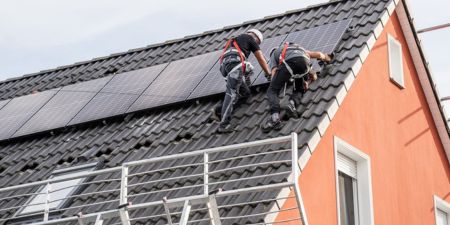
By: Simon Yuen
The European Parliament has approved a law requiring member states to deploy solar installations on buildings and renovate them to improve their energy efficiency.
The proposed revision of the Energy Performance of Buildings Directive (EPBD) includes several targets to reduce emissions. For example, member states of the EU will need to deploy solar installations progressively in public and non-residential buildings and all new residential buildings by 2030, when applicable.
All new buildings should be zero-emission by 2030, while new buildings occupied or owned by public authorities should be zero-emission by 2028.
The law also requires member states of the EU to take into account the lifecycle global warming potential of a building, including the production and disposal of the construction products used to build it.
For residential buildings, member states of the EU will be required to roll out measures to reduce the average primary energy use by at least 16% by 2030 and at least 20-22% by 2035. The worst-performing 26% of non-residential buildings in terms of energy efficiency must be renovated by 2030.
“The directive shows clearly how climate policy can have real and immediate benefits for the less well-off in our society. This law will help bring down energy bills and address the root causes of energy poverty,” said Ciarán Cuffe, rapporteur for the Energy Performance of Buildings Directive.
Sign up for the CREATE Newsletter and stay updated on the latest information in Renewable Energy Education.
Recent News
Copyright @ 2024 Center for Renewable Energy Advanced Technological Education
This material is based upon work supported by the National Science Foundation under Grant #2201631. Any opinions, findings, and conclusions or recommendations expressed in this material are those of the author(s) and do not necessarily reflect the views of the National ScienceFoundation.